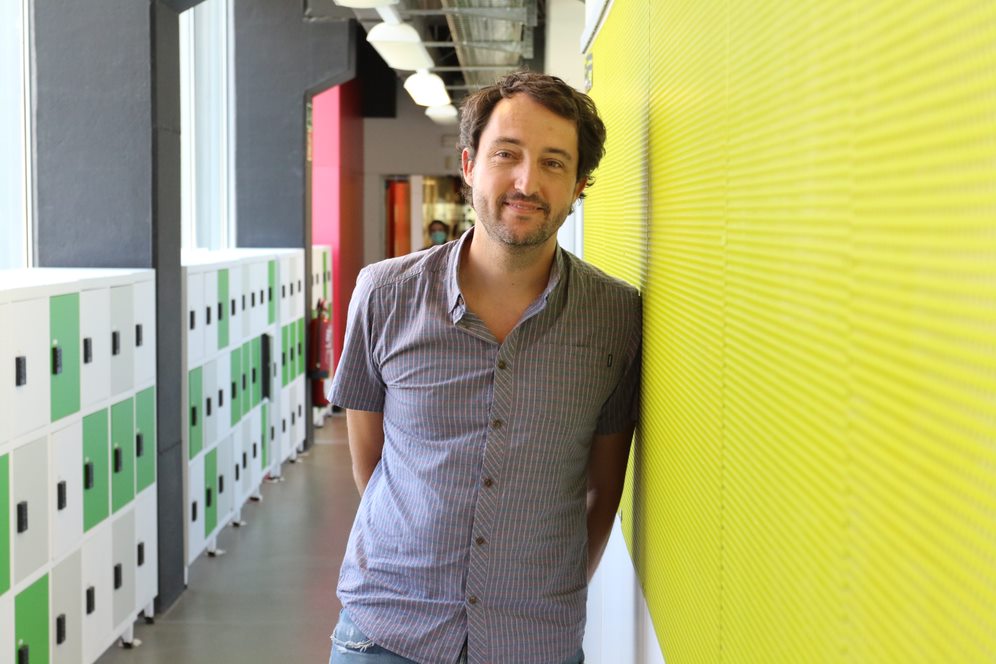Pere Roca-Cusachs, group leader at the Institute for Bioengineering of Catalonia (IBEC) and associate professor at the Faculty of Medicine of the University of Barcelona (UB), has been chosen to join the European Molecular Biology Organization (EMBO) , a prestigious network that brings together some of the most brilliant researchers in the world. Roca-Cusachs is a pioneer in Europe in the mechanobiology field and in the study of how physical forces affect diseases such as cancer.

Today, the European Molecular Biology Organization (EMBO) has released the names of the researchers who will join the prestigious organization, which has 88 Nobel laureates among its members. In total, 63 life science researchers have been recognized by the EMBO organization for their research career of excellence, among them, Pere Roca-Cusachs, principal investigator of the Institute of Bioengineering of Catalonia (IBEC) and associate professor at the Faculty of Medicine of the University of Barcelona (UB). Pere Roca-Cusachs’ pioneering research at IBEC is focused on the mechanobiology field.
Cutting-edge research in the physics of cancer
As leader of the “Cellular and Molecular Mechanobiology” group at IBEC, Prof. Roca-Cusachs focuses his research to unravel the mechanisms that cells and molecules use to detect and respond to mechanical forces and stimuli, such as, for example, tissue stiffness. These environmental stimuli determine how cells proliferate, differentiate, and move, and regulate processes such as embryonic development, tumour progression, or wound healing.
Since 2017, Pere Roca-Cusachs leads the “Mechano·Control” project, which, with funding from the European Union of more than 7 million euros, seeks to decipher and control how cells transmit and detect mechanical forces. The objective of Mechano·Control is to identify new tools to slow the progression of cancer and especially against breast cancer.
Among other recognitions, Pere Roca-Cusachs received the “Ciutat de Barcelona” award to life sciences 2018, for a study published in the Cell journal, where he identified a mechanism by which tissue rigidity regulates cell survival and proliferation, as well as its implications in diseases such as cancer and liver and lung fibrosis. In early 2019 he won the award of the “European Biophysical Societies Association (EBSA)” for his contributions in the field of mechanobiology. He is also a member of the “ICREA Academia” program of the Catalan Government.
“Being elected a member of EMBO is a great honour, due to the reputation of the organization and because it is a recognition that comes from my own scientific community. I hope to be worthy of this recognition, not only continuing with our research work, but also contributing to the dissemination and promotion of the importance of research on life sciences that EMBO represents throughout Europe”.
IBEC’s success at EMBO
The EMBO selects new scientists annually, candidate scientists must be nominated by current EMBO members and approved by another five members from different countries and then, they have to receive approval from the entire organization. In this edition, 63 candidacies from 25 different countries have been accepted, 52 of them have become part of the organization and 11 as associate members. Only three Spanish researchers are joining the organizaation and Pere Roca-Cusachs, who back in 2016 was already accepted in the “EMBO Young Investigator Programme”. The EMBO members are excellent scientists who carry out cutting-edge research in the different disciplines of the life sciences, among which there are 88 members who have received Nobel prizes. This new appointment is in addition to Xavier Trepat, also group leader at IBEC, who has been a member of EMBO since 2018.
About EMBO:
EMBO is an organization of more than 1800 leading researchers that promotes excellence in the field of life sciences, both in Europe and worldwide. The organization’s primary goals are to support talented researchers at all stages of their careers, stimulate the exchange of scientific information, and help build a research environment where scientists can achieve their best work. Along with Pere Roca-Cusachs, researchers Maria Dolores Martin-Bermudo from the Pablo de Olavide University and Guillermina López-Bendito from the Institute of Neurosciences of San Juan de Alicante have also been chosen by the organization.



